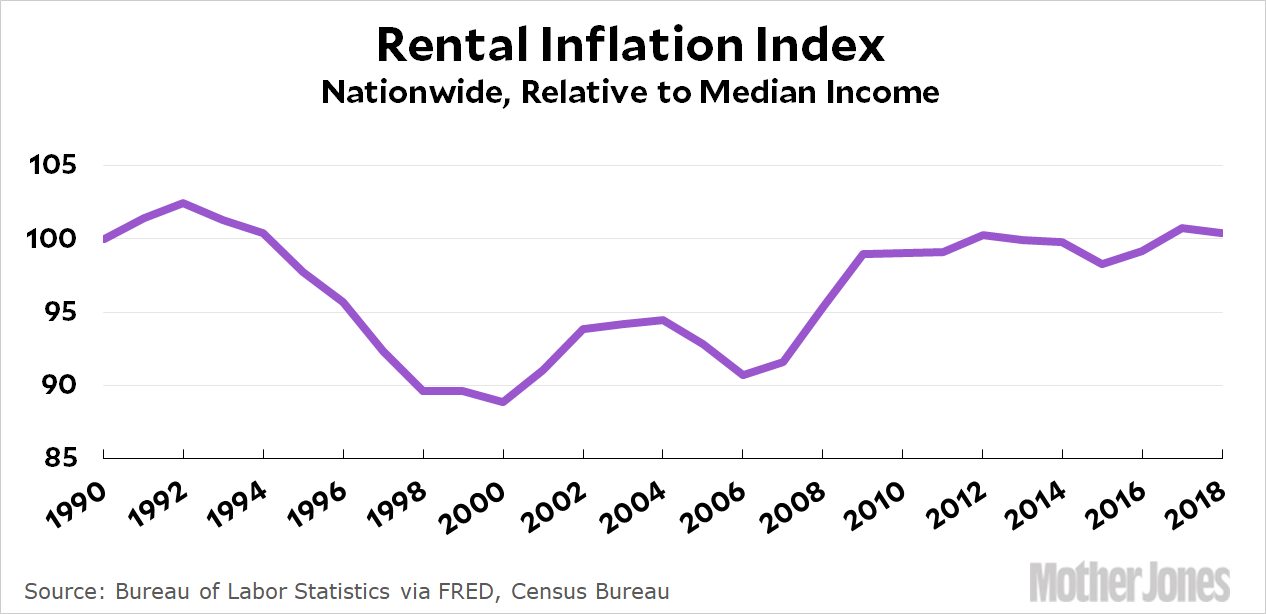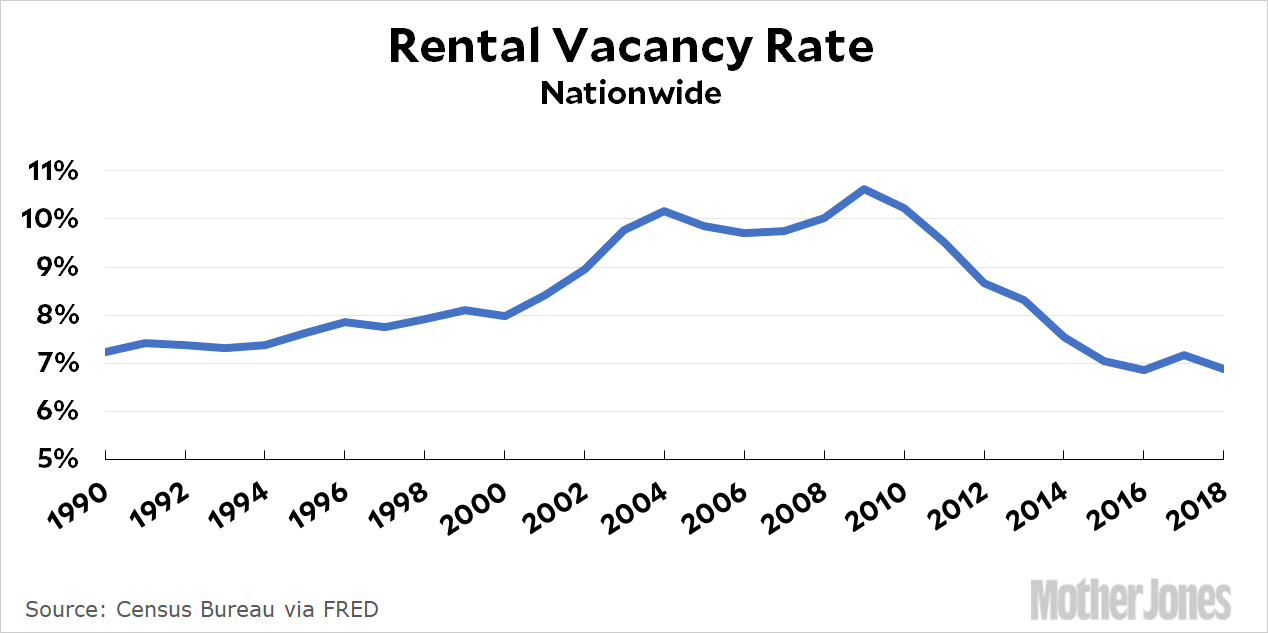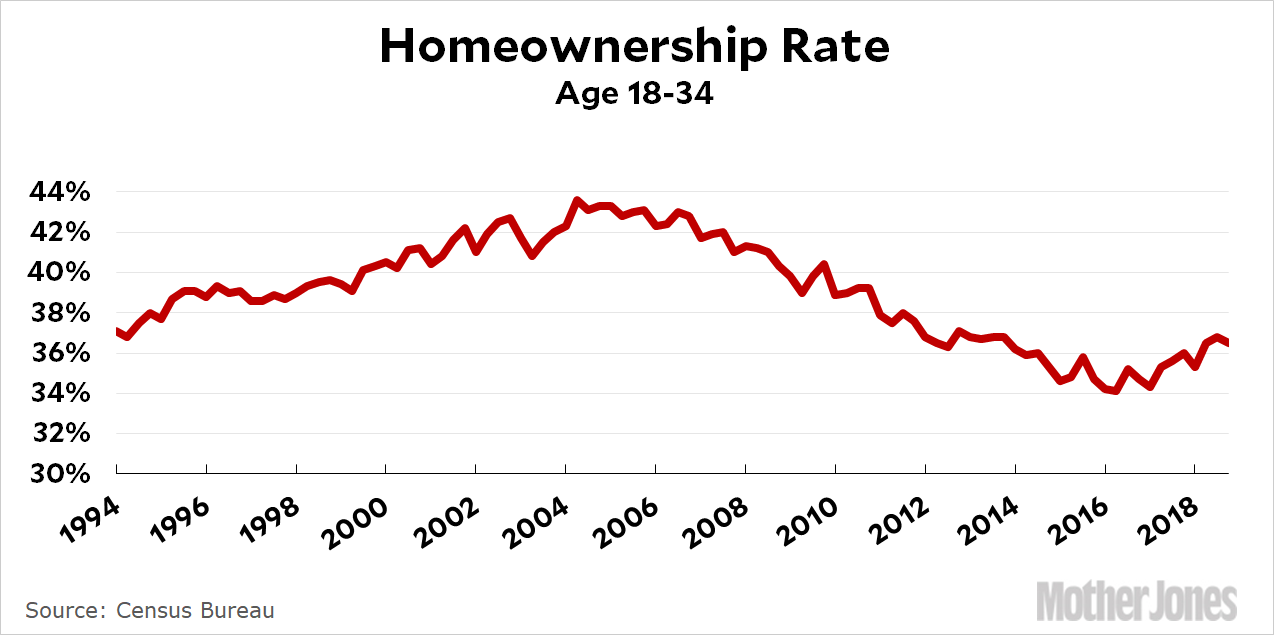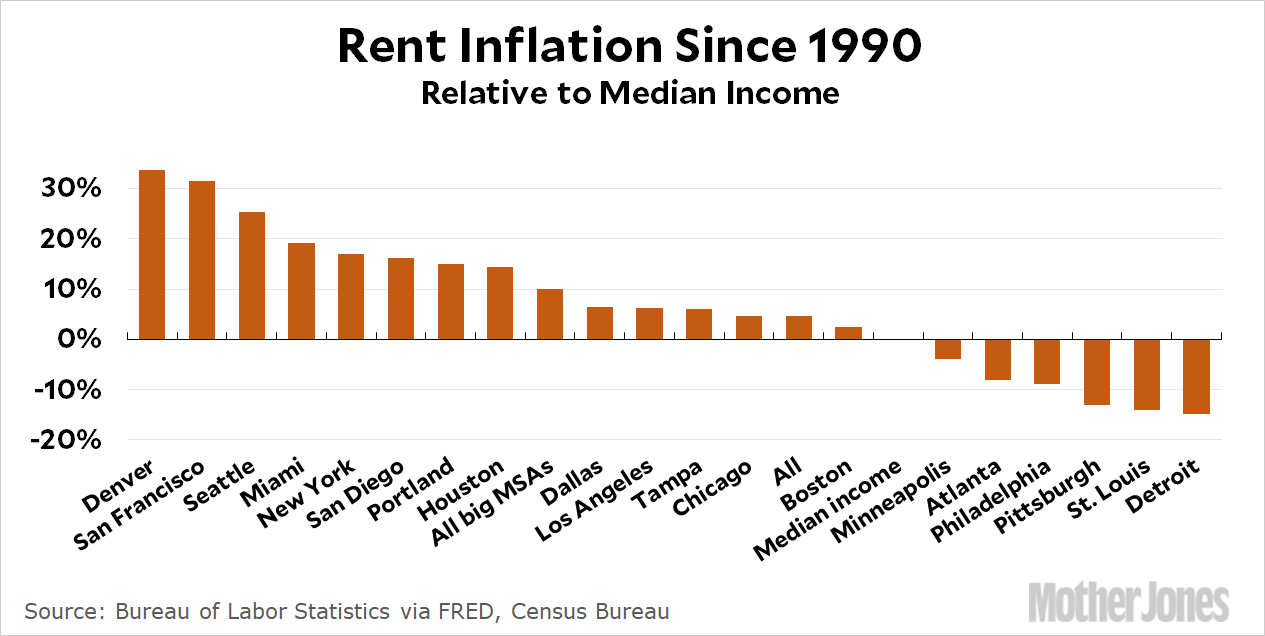The New York Times reports that high rent is becoming a serious campaign issue:
Renters hold little sway in Washington. They vote at lower rates than homeowners. They’re generally represented in Congress by homeowners. They have no deep-pocketed lobbyists. And their problems, if anyone considers them at all, are typically waved off as problems for local government.
It’s striking, then, that several Democratic candidates for president are now approaching renters in a way they’ve seldom been treated before — as a voting bloc. Elizabeth Warren, Cory Booker and Kamala Harris, senators from some of the most expensive housing markets in the country, have proposed substantial bills to alleviate the housing crisis. They’re not talking in gauzy terms about homeownership, the rare housing topic that usually gets a nod. They see unsustainable, raw-deal, skyrocketing rents, and they’re not hesitant to sermonize about it.
You might be tired of me going on and on about this, but here’s one more go at it. Please read to the end before you get mad at me. First, here’s the inflation index for rents since 1990, adjusted for median income:

There’s nothing there. Now here’s the rental vacancy rate:

The rental market doesn’t look especially tight. Following the housing bubble and the Great Recession, it’s now puttering along at about the same rate as in 1990. Here’s the homeownership rate for young households:

This isn’t directly related to rents, but it does suggest that young families are renting and owning at roughly the same rate as they did in the mid-90s. Homeownership rates are a little lower than they were in 1994, but not a lot.
All of this, of course, is nationwide data. What you really want to know is what rents look like in big cities. Here you go:

There’s no question that rent has gone up substantially in some cities. And this data is for MSAs, which usually include the surrounding suburbs. If you want to live in Manhattan or downtown Seattle, rent inflation has probably been higher than this chart shows. Still, there are only six MSAs where rents have gone up more than 15 percent relative to the rise in incomes. And that probably overstates the problem since median incomes are higher in cities.¹
The bottom line is that there isn’t any kind of nationwide rental or housing crisis. There’s a problem in six areas: Denver, San Francisco, Seattle, Miami, New York, and San Diego. And there’s probably a crisis in several downtown city areas—assuming that you consider it a crisis to be unable to live downtown even though you’d like to.
It’s hard for me to see this as the problem that a lot of people make it out to be. And even if it is, I’d say the real crisis is income, not housing. Even the high-priced cities would be less of a problem if incomes hadn’t been stagnant since the year 2000—and actually down for young people. If we figure out how to solve the income problem, we’d solve a whole lot of other problems at the same time. Including the housing crisis.
¹I wish I could get data for median income by MSA, but I’ve never been able to find it in any kind of reliable and consistent form. Still, even if I could get it I’d be stuck with a chicken-and-egg problem anyway. Are incomes higher in cities because cities are more economicallly prosperous? Or because only affluent people can afford to live in big cities? There’s not really any way to tease this out.










